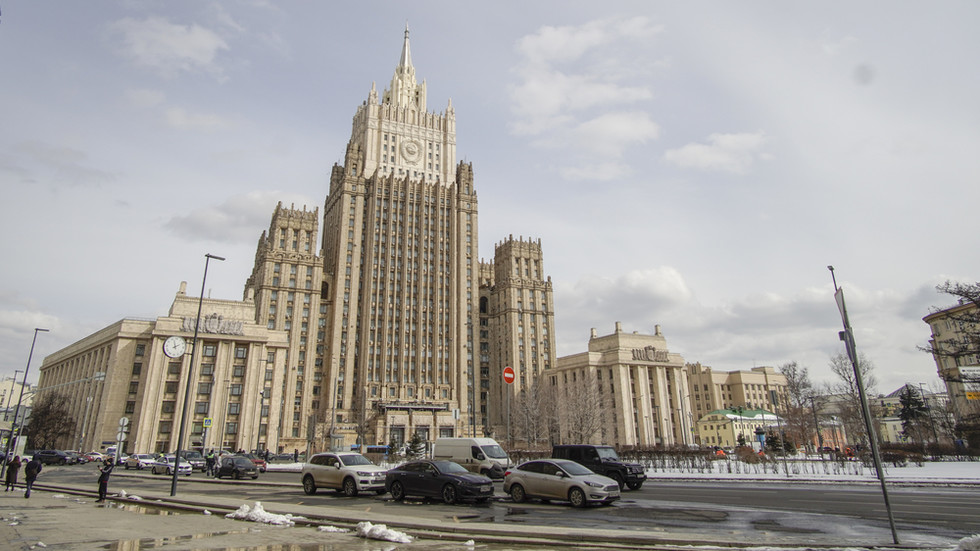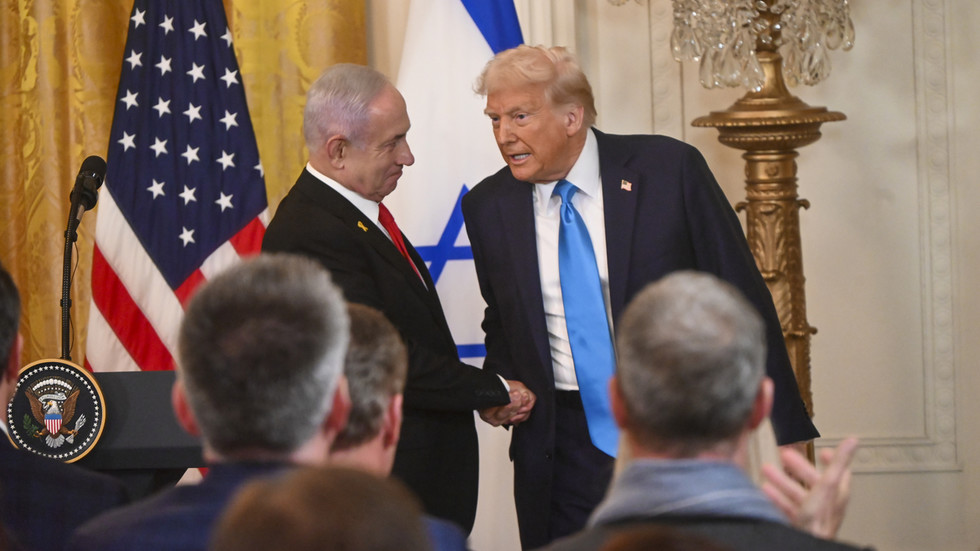It was just 18 months ago that Daniel Noboa, 37, won Ecuador’s presidency, becoming the youngest man ever elected to the office.
Now, on Sunday, he faces the polls once more.
This time, however, a bigger prize is at play: a full four-year term in the presidential palace. Since Noboa’s last victory was in a snap election, he has been limited to serving out the remainder of his predecessor’s term.
In Sunday’s race, Noboa will face off against 15 contenders, including left-wing lawmaker Luisa Gonzalez, his main competition in the last election. The vote is poised to be a referendum on his brief stint in office so far.
Noboa entered office as a law-and-order candidate, spearheading several measures expanding the powers of law enforcement – sometimes at the expense of oversight and civil liberties. But Ecuador has nevertheless continued to suffer from high levels of violence and organised crime.
Who are the candidates? Which issues are voters focused on? And what can opinion polls tell us about the state of the race? We answer those questions and more in this brief explainer.
What is Ecuador’s voting process?
The first round of voting will occur on Sunday, February 9. In order to win outright, a candidate must secure more than 50 percent of the vote, or at least 40 percent with a 10-point advantage over the candidate in second place.
If a candidate does not pass that threshold in the first round, a second round of voting will be held on April 13, featuring the top two candidates.
Is the presidency the only office up for grabs?
No. This is a general election. All seats in the country’s 151-member National Assembly will also be up for grabs, and those elected to the legislature will also serve four-year terms.
Why has Noboa’s term in office been so short?
President Noboa was first elected in October 2023 after his predecessor Guillermo Lasso, faced with impeachment proceedings, invoked a constitutional mechanism known as the “muerte cruzada” or “crossed death”.
No president had ever deployed the muerte cruzada before. Not only did it end Lasso’s term, but it also dissolved Ecuador’s legislature, triggering snap elections.
At the time, Noboa was a first-term member of the National Assembly, and he was among the elected officials affected by the muerte cruzada.
The heir to a banana business fortune, Noboa ultimately formed his own party and ran for the presidency, winning a tight race that progressed to a second round. He was 35 years old at the time.
He then completed what would have been the remainder of Lasso’s term, a period of 18 months. Now, he is seeking a full four-year term of his own.
 Presidential candidate Luisa Gonzalez speaks ahead of a televised presidential debate on January 19 [Dolores Ochoa/AP Photo]
Presidential candidate Luisa Gonzalez speaks ahead of a televised presidential debate on January 19 [Dolores Ochoa/AP Photo]What do the polls say?
Noboa will face competition from a crowded field of candidates. But his biggest competition is likely to be Luisa Gonzalez, whom he defeated by a margin of less than four points in 2023.
Gonzalez represents the left-leaning Citizen Revolution party, founded by former President Rafael Correa.
Most polls show Noboa in the lead – but short of the threshold to avoid a run-off. It is very likely that, just as in 2023, the election will proceed to a second round that pits Noboa against Gonzalez.
Polls show no other candidate with enough support to challenge the frontrunners, but pre-election polling doesn’t always tell the whole story. Noboa himself barely registered in voter intention polls prior to the first round of voting in 2023.
Who else is running?
Some familiar faces are in the lineup. Jan Topic, a right-wing businessman who ran in 2023, is competing again, reprising his call for iron-fisted – or “mano dura” – policies to combat crime.
Leonidas Iza, president of the country’s powerful Indigenous confederation CONAIE, is also a returning candidate. He was a prominent critic of former President Lasso and has campaigned on a platform of greater sovereignty and opportunities for Indigenous peoples.
Another candidate is likely to serve as a reminder of Ecuador’s struggles with violence.
In 2023, the presidential race was rocked when an anticorruption candidate, Fernando Villavicencio, was shot and killed after leaving a rally, shortly before the vote. He had sought to highlight the link between organised crime and government corruption.
His former running mate, Andrea Gonzalez, will be in the race on Sunday.
 A supporter of Ecuador’s President Daniel Noboa holds up a cut-out photo of the president’s head outside Carondelet Palace on January 28 [Dolores Ochoa/AP Photo]
A supporter of Ecuador’s President Daniel Noboa holds up a cut-out photo of the president’s head outside Carondelet Palace on January 28 [Dolores Ochoa/AP Photo]What do the polls say about the National Assembly?
In the race for control of the legislature, the parties of Noboa and Gonzalez also lead the rest of the field.
Most polls in January showed Noboa’s National Democratic Action (ADN) party leading Gonzalez’s Citizen Revolution (RC) by varying margins. Only one poll found the RC ahead of the ADN by about three points.
Currently, the National Assembly has 137 spots, and Citizen Revolution holds the most seats of any single party: 48. But after Sunday’s election, the National Assembly will expand to 151 seats, and Noboa’s party is expected to make significant gains.
What issues do voters care most about?
A number of issues have emerged as top priorities in public opinion polls, such as the rising cost of living, a lack of adequate economic opportunities, and a series of electricity blackouts that have made life difficult for residents of the country.
But a January poll by the data firm Comunicaliza suggested that one issue takes precedence over all others: crime and insecurity. It outranked the second-highest concern, the lack of employment opportunities, by about 14 points.
“It’s been reflected in survey after survey that this is concern number one,” Ivan Briscoe, an expert on Latin American politics at the International Crisis Group, told Al Jazeera.
Why has violence become such a problem in Ecuador?
Ecuador was once seen as a country that was safer and more stable than other parts of South America. It gained a reputation as an “island of peace” in a region otherwise known for cocaine cultivation and trafficking.
But in recent years, an explosion of violence and organised criminal activity has shocked the country.
“Ecuador had 7,000 murders last year with a population of 18 million people, making it the highest murder rate in South America. And that’s in a country which for decades was known as a peaceful country,” Briscoe said.
“It throws a light on the state’s inability to respond, but also raises the question of the complicity of state officials in criminal ventures and, thus, the scale of corruption.”
Ecuador sits on the Pacific coast between Colombia and Peru, the world’s largest producers of cocaine.
In the aftermath of the COVID-19 pandemic, experts say drug-trafficking groups started to push into Ecuador’s territory, seeking to take advantage of the country’s ports.
The pandemic also wrought devastation on Ecuador’s economy, leaving many youths unemployed and vulnerable to recruitment from criminal networks.
Noboa has blamed his predecessors for allowing cocaine production to take root in Ecuador. In October, his government announced that the production of coca – the raw ingredient for the drug – was detected on approximately 2,000 hectares (4,942 acres) of land.
What solutions have been put forward?
Voters have largely placed their faith in harsh solutions.
In April, for instance, the country voted largely in favour of reforms that would formalise the military’s role in public security and impose stricter penalties for crimes like drug trafficking.
Noboa himself has shown a willingness to suspend key civil liberties in the name of advancing security.
In January 2024, Noboa announced that the country was “at war” with criminal groups and declared a state of internal armed conflict, expanding the role of the military in law enforcement activities.
Thus far, the results have been mixed. While the murder rate dipped slightly in 2024, it remains well above pre-pandemic levels.
Abuses have also come to light that raise questions about the military’s expanded powers. In one case, surveillance footage appeared to show a military truck abducting four youths in the port city of Guayaquil. Their charred remains were later found near a military base.
But Briscoe said that, for the time being, Ecuadorean politics is dominated by tough-on-crime rhetoric and ideas.
“Nobody is going to suggest negotiating with criminal groups. That is not on the agenda of any candidate,” he said.
But he added that security measures alone would not be enough to address the roots of crime in Ecuador.
“When you can’t leave your house because of crime, you will want the state to respond,” he said.
“Over the long run, however, those security-minded policies like deploying the military will tend to fail if they’re not accompanied by other more systemic, far-reaching approaches which deal with corruption, socioeconomic inequality and criminal investigation.”

 3 hours ago
3
3 hours ago
3








